第32章 CHAPTER IV.(2)
No doubt your Majesty will immediately finish what you have so well begun." The King had his confessor Maudoua called back; this was a poor priest who had been placed about him for some years before because he was old and blind. He gave him absolution.
The formal renunciation desired by the Choiseul party, in order to humble and annihilate Madame du Barry with solemnity, was no more mentioned. The grand almoner, in concert with the Archbishop, composed this formula, pronounced in presence of the viaticum:
"Although the King owes an account of his conduct to none but God, he declares his repentance at having scandalised his subjects, and is desirous to live solely for the maintenance of religion and the happiness of his people."
On the 8th and 9th the disorder grew worse; and the King beheld the whole surface of his body coming off piecemeal and corrupted.
Deserted by his friends and by that crowd of courtiers which had so long cringed before him, his only consolation was the piety of his daughters.--SOULAVIE, "Historical and Political Memoirs," vol. i.]
The Comtesse du Barry had, a few days previously, withdrawn to Ruelle, to the Duc d'Aiguillon's. Twelve or fifteen persons belonging to the Court thought it their duty to visit her there; their liveries were observed, and these visits were for a long time grounds for disfavour. More than six years after the King's death one of these persons being spoken of in the circle of the royal family, I heard it remarked, "That was one of the fifteen Ruelle carriages."
The whole Court went to the Chateau; the oiel-de boeuf was filled with courtiers, and the palace with the inquisitive. The Dauphin had settled that he would depart with the royal family the moment the King should breathe his last sigh. But on such an occasion decency forbade that positive orders for departure should be passed from mouth to mouth. The heads of the stables, therefore, agreed with the people who were in the King's room, that the latter should place a lighted taper near a window, and that at the instant of the King's decease one of them should extinguish it.
The taper was extinguished. On this signal the Body Guards, pages, and equerries mounted on horseback, and all was ready for setting off. The Dauphin was with the Dauphiness. They were expecting together the intelligence of the death of Louis XV. A dreadful noise, absolutely like thunder, was heard in the outer apartment; it was the crowd of courtiers who were deserting the dead sovereign's antechamber, to come and do homage to the new power of Louis XVI. This extraordinary tumult informed Marie Antoinette and her husband that they were called to the throne; and, by a spontaneous movement, which deeply affected those around them, they threw themselves on their knees; both, pouring forth a flood of tears, exclaimed: "O God! guide us, protect us; we are too young to reign."
The Comtesse de Noailles entered, and was the first to salute Marie Antoinette as Queen of France. She requested their Majesties to condescend to quit the inner apartments for the grand salon, to receive the Princes and all the great officers, who were desirous to do homage to their new sovereigns. Marie Antoinette received these first visits leaning upon her husband, with her handkerchief held to her eyes; the carriages drove up, the guards and equerries were on horseback. The Chateau was deserted; every one hastened to fly from contagion, which there was no longer any inducement to brave.
On leaving the chamber of Louis XV., the Duc de Villequier, first gentleman of the bedchamber for the year, ordered M. Andouille, the King's chief surgeon, to open the body and embalm it. The chief surgeon would inevitably have died in consequence. "I am ready," replied Andouille; "but while I operate you shall hold the head; your office imposes this duty upon you." The Duke went off without saying a word, and the corpse was neither opened nor embalmed. A few under-servants and workmen continued with the pestiferous remains, and paid the last duty to their master; the surgeons directed that spirits of wine should be poured into the coffin.
The entire Court set off for Choisy at four o'clock; Mesdames the King's aunts in their private carriage, and the Princesses under tuition with the Comtesse de Marsan and the under-governesses. The King, the Queen, Monsieur, the King's brother, Madame, and the Comte and Comtesse d'Artois went in the same carriage. The solemn scene that had just passed before their eyes, the multiplied ideas offered to their imaginations by that which was just opening, had naturally inclined them to grief and reflection; but, by the Queen's own confession, this inclination, little suited to their age, wholly left them before they had gone half their journey; a word, drolly mangled by the Comtesse d'Artois, occasioned a general burst of laughter; and from that moment they dried their tears.
The communication between Choisy and Paris was incessant; never was a Court seen in greater agitation. What influence will the royal aunts have,--and the Queen? What fate is reserved for the Comtesse du Barry?
Whom will the young King choose for his ministers? All these questions were answered in a few days. It was determined that the King's youth required a confidential person near him; and that there should be a prime minister. All eyes were turned upon De Machault and De Maurepas, both of them much advanced in years. The first had retired to his estate near Paris; and the second to Pont Chartrain, to which place he had long been exiled. The letter recalling M. de Machault was written, when Madame Adelaide obtained the preference of that important appointment for M. de Maurepas. The page to whose care the first letter had been actually consigned was recalled.